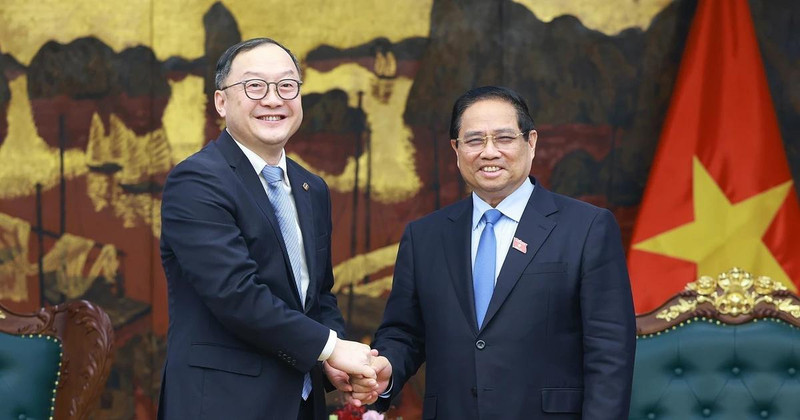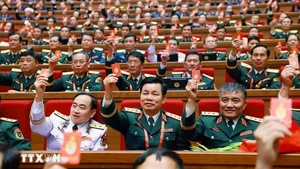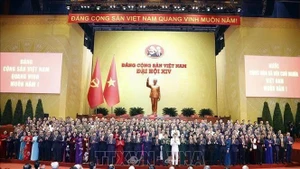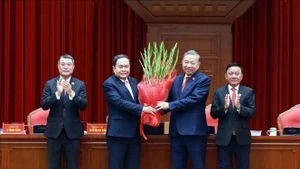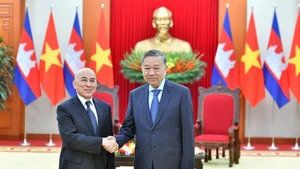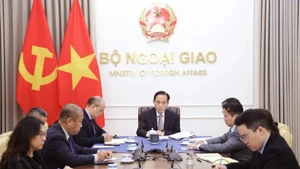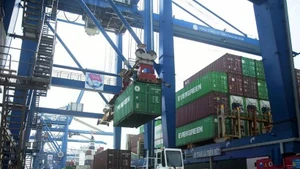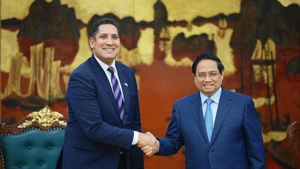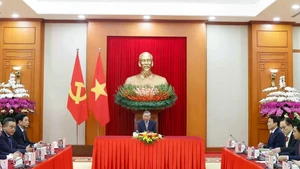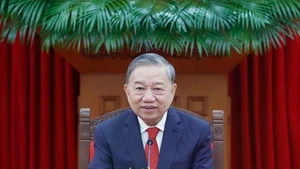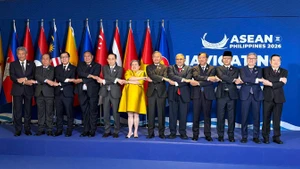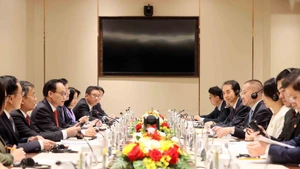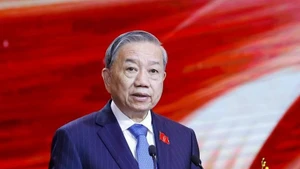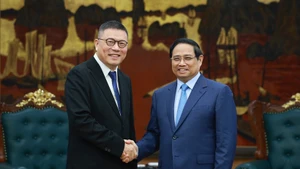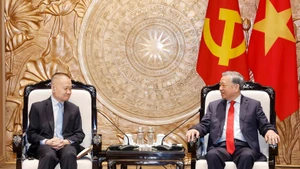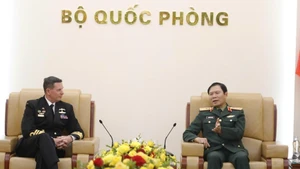During a reception in Ha Noi on May 21 for President of PowerChina Asia Pacific Zhou Jiayi, PM Chinh specifically proposed cooperation on the Hai Phong – Ha Noi – Lao Cai railway line, which would connect with China’s Kunming and Chongqing, creating a key transport corridor to European markets.
This push came at a time when Viet Nam is focusing on three strategic breakthroughs, with a strong emphasis on transport, energy and digital transformation infrastructure. Connectivity with China, especially in rail, is a priority.
PM Chinh welcomed PowerChina’s cooperation plans with Vietnamese partners, expressing support for its business expansion in Viet Nam, particularly in the railway sector. He noted that China has long supported Viet Nam in numerous areas, with many joint projects continuing to deliver tangible benefits.
Viet Nam encourages reputable Chinese corporations to invest in railway infrastructure, starting with the Lao Cai – Ha Noi – Hai Phong line, he said, suggesting PowerChina work closely with Viet Nam to develop railway industry, transfer technology and know-how, train quality workforce, and offer operational expertise.
He also highlighted recent Vietnamese resolutions aimed at advancing sci-tech, innovation, digital transformation, and private-sector development, which offer incentives and a favourable investment climate.
The PM encouraged PowerChina to integrate Vietnamese firms into its global supply chain; transfer clean energy technologies to firms like Viettel and the Viet Nam National Industry - Energy Group for wind turbine and solar panel production, and partner with local firms like Lung Lo and Song Da to explore wind energy projects in northern provinces.
The leader expressed hope that PowerChina would use Viet Nam as a springboard to grow its presence in Southeast Asia and beyond.
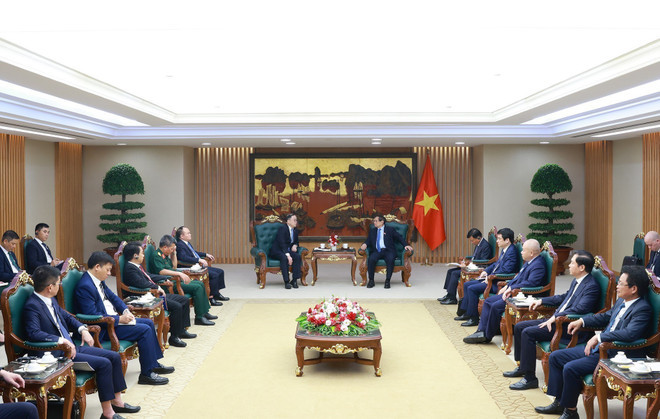 |
| At the reception (Photo: VNA) |
Reaffirming Viet Nam’s commitment to harmonising interests and sharing risks, he assured that the Vietnamese Government stands ready to accompany, support, and safeguard the legitimate rights and interests of foreign investors, including PowerChina and other Chinese firms, to ensure successful, effective, and law-abiding projects that generate shared benefits.
Zhou, citing PowerChina’s experience in building over 2,000 km of railways in China, Laos, and Indonesia, expressed enthusiasm for Viet Nam’s rail projects. He proposed government backing to collaborate with four Vietnamese firms on the Lao Cai-Ha Noi-Hai Phong line, promising timely, quality, and cost-effective construction while sharing technical and management expertise.
PowerChina, the world’s seventh-largest energy contractor, operates in over 130 countries, with 2024 revenue exceeding 100 billion USD, ranking it 108th among the world’s top 500 companies. Its portfolio spans hydropower, irrigation, electricity, urban infrastructure, mining, and digitalisation.
Active in Viet Nam since the early 2000s, PowerChina has contributed to over 100 energy and infrastructure projects, including seaports. In 2024, it signed a memorandum of understanding with four Vietnamese firms, namely FECON JSC, Lung Lo Construction Corporation, Song Da Corporation JSC, and Thang Long Joint Stock Corporation, to form the CVRail Consortium focused on nationally significant railway projects. The consortium’s combined 2024 revenue was estimated at around 22 trillion VND (880 million USD).
